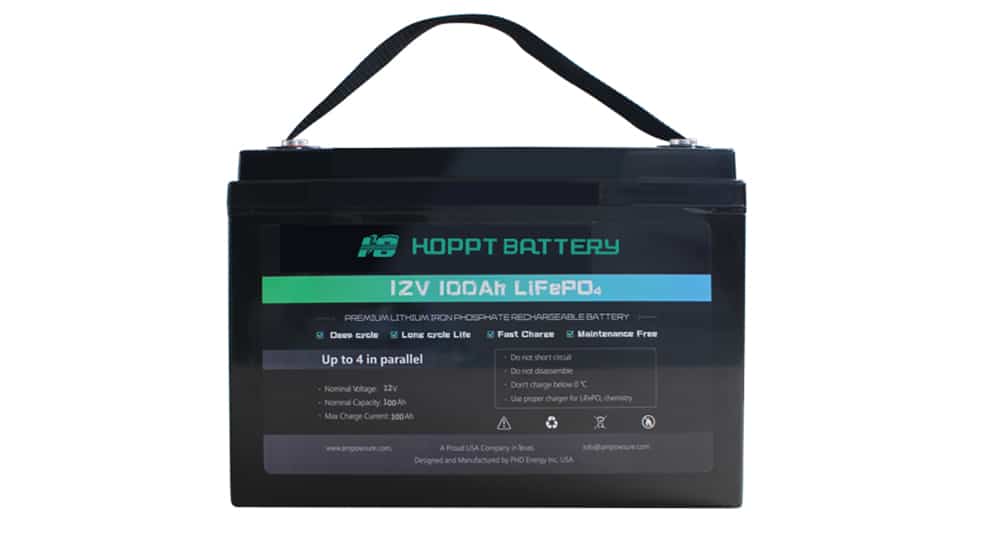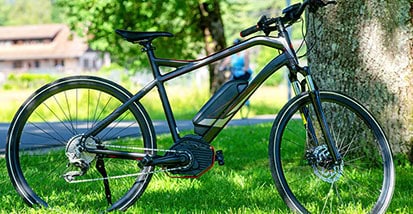- Curved Lithium Polymer battery
- Fast Charge Polymer Battery
- Flexible Polymer Lithium Battery
- Ultra-thin Polymer Battery
/ Blog / Battery Knowledge /
12 Volt Lithium Battery: Lifespan, Uses and Charging Precautions
23 Dec, 2021
By hoppt

12-volt lithium-ion batteries have numerous applications and a considerable lifespan. The most common application of these power sources is in emergency power backups, remote alarm or surveillance systems, lightweight marine power systems, and solar power storage banks.
The benefits of lithium-ion technology include a long cycle life, high discharge rate, and low weight. These batteries are also do not emit any poisonous gases when recharging.
How long does a 12V Lithium battery last?
The life expectancy of a lithium-ion battery is directly proportional to the charge cycles, and for everyday use, this translates to about two to three years.
A lithium-ion battery is manufactured with a definite number of charging cycles, after which the battery won't hold a sizeable amount of power as it used to. Typically, these batteries have 300-500 charging cycles.
Also, the life expectancy of the 12-volt lithium-ion battery will vary depending on the type of use it gets. A battery that's regularly cycled between 50% and 100% will have a longer life expectancy than one that discharges to 20% and then charges fully.
Lithium-ion batteries age more slowly when not in use. Nevertheless, they gradually reduce the capacity to hold a charge, and the degradation rate will also depend on storage conditions. This process is not reversible.
What are 12-volt lithium batteries used for?
12-volt lithium batteries have numerous applications.
RVs: 12V batteries are used in RVs for various reasons, most notably to power the lights, water pump, and refrigerator.
Boats: A 12V battery is also a crucial part of a boat's electrical system, and it's responsible for starting the engine, powering the bilge pump, and running the navigational lights.
Emergency backup: When the electricity goes out, a 12V battery can be used to power an LED lamp or radio for hours at least.
Solar power storage bank: A 12V battery can store solar energy, which has numerous applications either at home or in boats, camper vans, etc.
Golf cart: Golf carts draw their power from 12V lithium-ion batteries.
Security alarms: These systems require a reliable backup power source, and 12V lithium-ion batteries are a perfect fit.
Precautions for 12V Lithium Battery Charging
When charging a 12-volt lithium-ion battery, you should take some precautions. These precautions include:
Limited charge current: The charging current for a Li-ion battery is usually limited to 0.8C. Although fast-charge technologies are available, they are not recommended for lithium-ion batteries, at least if you want the maximum lifespan.
Charging Temperature: The charging temperature should be between 40 degrees and 110 degrees F. Charging beyond these limits can cause permanent battery damage. Still, the battery temperature will rise slightly when charging or drawing power rapidly from it.
Overcharge Protection: A lithium-ion battery is typically equipped with overcharge protection, which will stop charging when the battery is full. This circuitry ensures the voltage doesn't exceed 4.30V. Ensure the battery management system is working fine before charging Lithium-ion batteries.
Over-discharge protection: If the battery gets discharged below a specific voltage, typically 2.3V, it can't be charged any more, and it's considered "dead."
Balancing: When more than one lithium-ion battery is connected in parallel, they should be balanced to be charged equally.
Charging temperature range: Lithium-ion batteries should be charged in a cool, well-ventilated area with an ambient temperature between 40 degrees and 110 degrees Fahrenheit.
Reverse Polarity Protection: If the battery is incorrectly connected to the charger, reverse polarity protection will stop the current from flowing and potentially damage the battery.
Final word
As you can see, 12V Li-ion batteries have a wide range of applications, thanks to their efficiency and extended lifespan. Next time you charge one, keep the above precautions in mind for maximum safety and service life.



